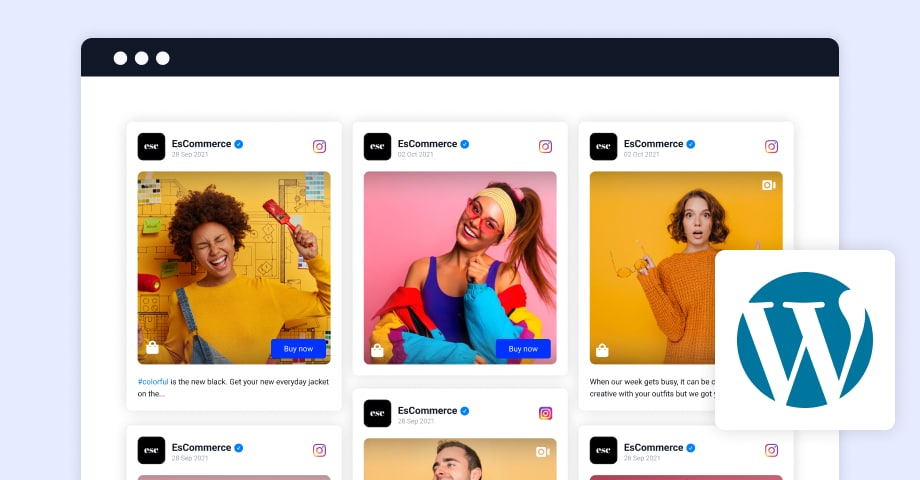There is simply no shortage of social media experts giving advice on what platforms to use, specific tips and tools, and providing updates on the latest developments. However, expert advice, while valuable and incredibly helpful, can only get us so far.
In a rush to join the latest platform, optimize our images or figure out Facebook’s latest changes, most of us tend to get caught up in the “how” of social media when the real focus should be on the “why”.
Without understanding your “why” for social media, you can easily become disconnected from the true foundation of your social media strategy.
Here are the three things expert social media advice can’t tell you.
Why Are You Using Social Media?
Effective social media strategy starts with one simple question: why?
As you dig into figuring out your “why,” you may find that it is more complicated than you realized. Simply being on Twitter or Facebook or Google+ because you should be is not good enough.
To get clear on your why, tie it back to your business goals. How can social media play a role in supporting every aspect of your business, from generating more sales to extending your customer service reach to connecting with key influencers in your market?
With a clear goal in mind, you can pick the right platform and activities for your business, with a focus on setting objectives that are SMART – specific, measurable, assignable, realistic and time-related.
Instead of getting stuck on numbers, like the number of followers you have on Facebook, look at the big picture. Does having a set number of followers help you meet your business goals?
Focusing in on SMART goals that are related to things such as your sales or growing your email list will have a greater impact on your business than worrying about how to get your Facebook page to 10,000 followers.
Possible goals could include:
- I will boost my prospect list by adding 500 subscribers to my mailing list over the next 3 months.
- I will book three new clients each month by connecting with my community on a daily basis.
- I will generate 30 new leads over the next six months by using X social media platform.
Travel expert Carl Henderson from Tahiti by Carl is a great example of social media goal setting in action. He started with a focus on building his following on Facebook, but his goal was not to hit a certain number of followers. Instead, he wanted to create connections that would result in people booking vacations.
His campaign to grow his page and connect with fans has resulted in new leads coming in from the platform, and stronger connections with key suppliers in Tahiti.
What Are the Needs of Your Ideal Customer?
At some point in your business, you likely went through an exercise of figuring out the needs, desires and pain points of your ideal customer. For your social media, you want to build on this profile so you can decide how to best meet your goals.
Start by figuring out how your ideal customer consumes information and in what format.
For example, if you are targeting busy moms, they likely don’t have time for long blog posts as they are reading on their phone between carpool, soccer practice and staying on top of work emails.
You want to dive into where your ideal customer may hang out in the social media world. Research the demographic and psychographic information of each social platform.
Start by using Google to see what information you can find on each network. You may also want to checkout Pew Internet, Statistic Brain and Statista for usage information and metrics for each platform.
For example, if your target audience is busy moms who are 30-45 years old, you’ll quickly find out they are most active on Facebook and Pinterest and you’ll be able to focus your efforts accordingly. There’s no point in being on Vine if your ideal customer doesn’t know what a Vine even is.
If you aren’t sure where to go, stop and evaluate your current social media presence. Here are a few ways you can easily do that:
- Follow the Numbers: Where do you get the most engagement or meet with the most success? Use tools such as Facebook Insights to see where your posts may be succeeding or missing the mark. Where do you get the most opt-ins to your list or comments, shares or likes? Tracking these numbers can help give you clues about what’s working and where you may need to fine tune.
- Survey Your Community: Survey your current list or social media followers to find out where they like to hang out, what platforms they enjoy and how they use them. The more intelligence you have, the better! You can use a tool such as SurveyMonkey or Google Forms to gather this information quickly.
With this information, you can start making clear decisions about where your customers are congregating online. These platforms should be your focus. And you can start building a plan to best serve your clients on each one with the most appropriate content and engagement strategies.
What Social Networks Do You Enjoy Using?
One of the most commonly held pieces of social media advice is to “be everywhere,” so we sign up for many platforms. The reality is that we are bound by time, so trying to be on every platform and do a good job is just not achievable.
Instead of being on multiple platforms and doing a mediocre (or even poor) job, it is much more effective to focus on one or two networks and be a powerhouse.
Deciding where to focus should take into account what social networks you (or your team) enjoy using.
If you personally hate Twitter, trying to focus on building your presence there is going to be hard. On the other hand, if you love Instagram, you are likely to be successful using it.
While you are behind the screen, your enthusiasm comes through. Don’t force networks that just don’t work for you. You are naturally going to gravitate to some platforms and dislike others, and that’s okay. If possible, incorporate that into your social media strategy.
No Expert Can Tell You Why You’re On Social Media
Taking time to step back and look at the foundation of your social media strategy creates the type of clarity and focus for your day-to-day activities, which will help get results that impact your business in the long-term.
And no matter what the social experts say, your reasons for being on social media are yours and yours alone. From building your list to boosting your sales, having a strong connection with your own and your customer’s “why” when it comes to social media will go a long way towards your success.
What will you do to get clarity on your social media strategy and start being more usefully strategic? Comment below to share your ideas.



